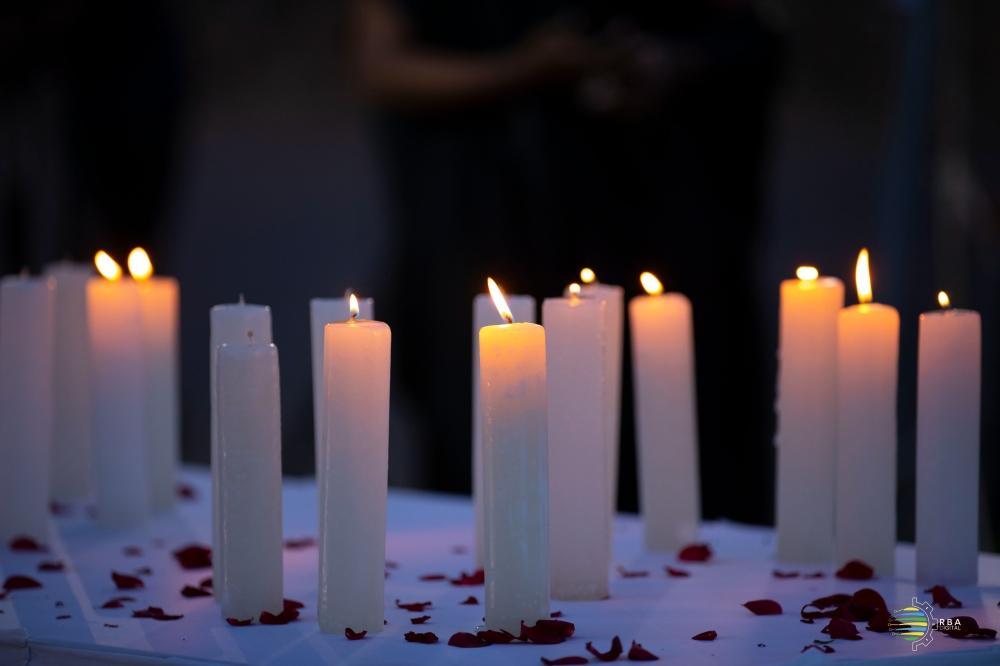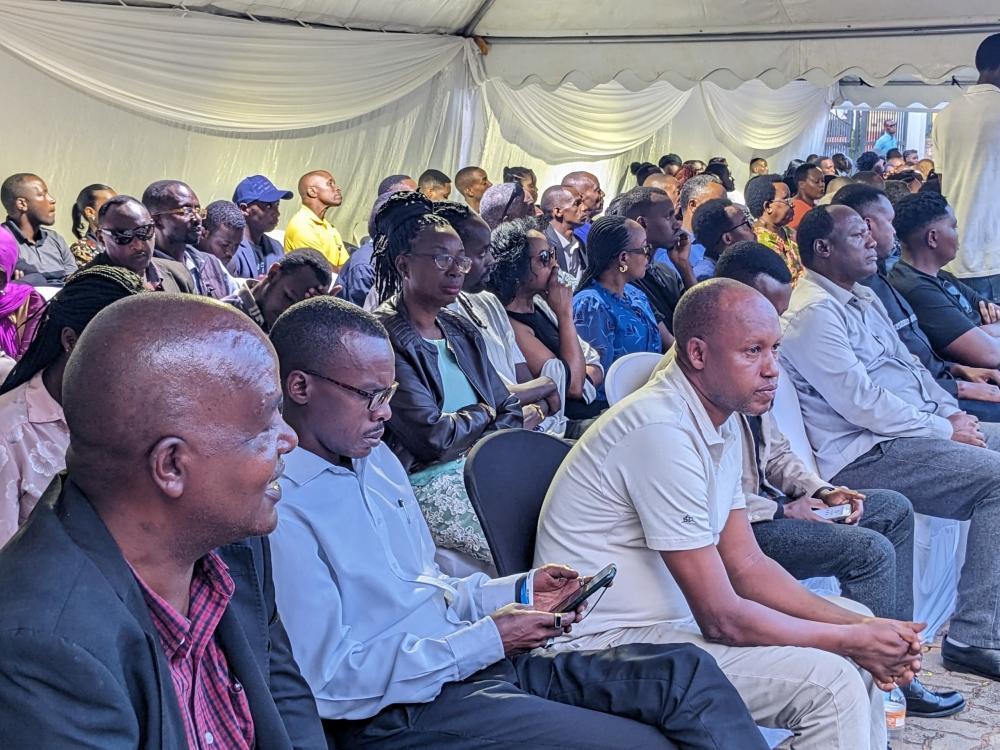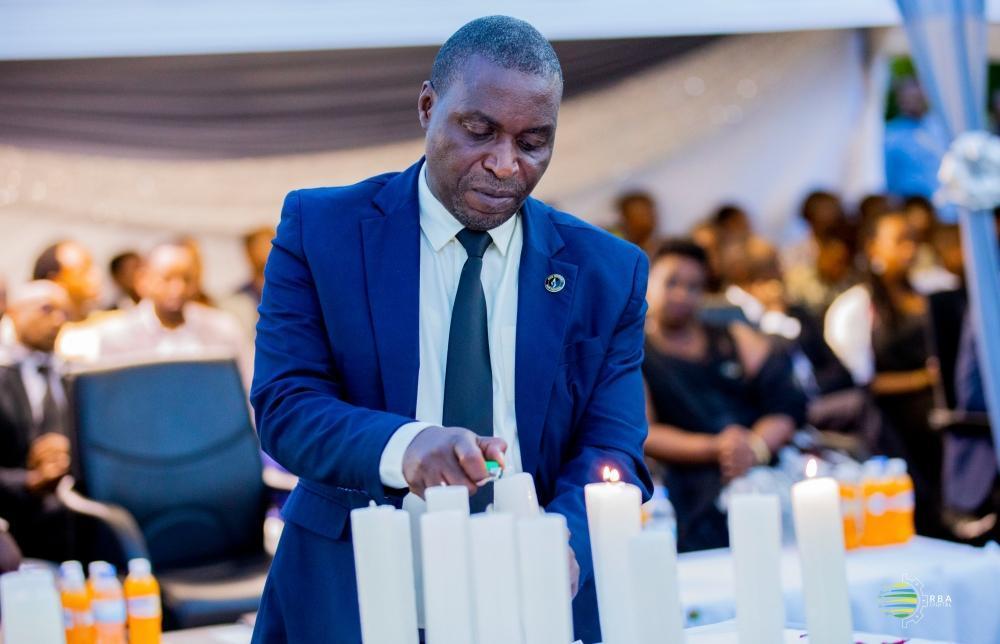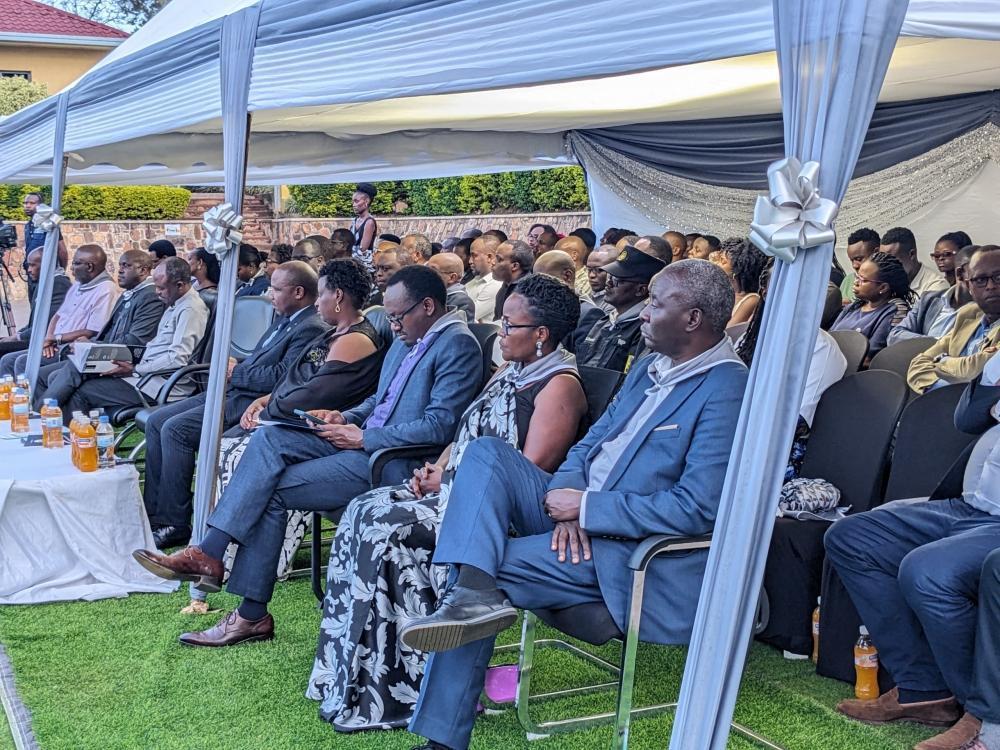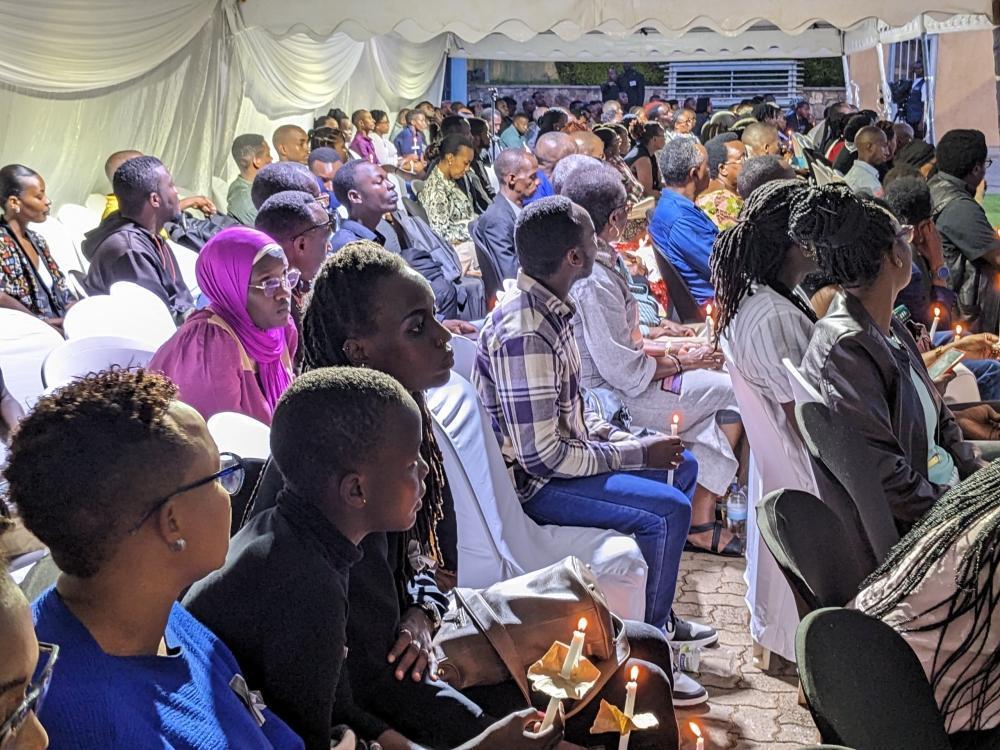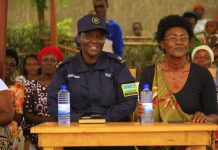Africa-Press – Rwanda. As the Rwandan media fraternity on Friday, April 12, commemorated journalists killed in the 1994 Genocide against the Tutsi, reflecting on the role played by people who spread hate and the bravery of those who stood up against discrimination, it was noted that post-Genocide media chose to be a force for good.
At least 60 journalists are known to have been killed during the 1994 Genocide that claimed more than one million lives in 100 days.
During the commemorative event which was attended by relatives of the slain journalists, government officials, and representatives of journalists’ associations, the mourners condemned the media houses such as ‘hate radio’ RTLM and Kangura newspaper, which fueled the killings of the Tutsi.
Members of Rwandan media fraternity observe a moment of silence to commemorate journalists killed in the 1994 Genocide against the Tutsi on Friday, April 12. Courtesy
Journalists like Vincent Rwabukwisi, the founder of Kanguka newspaper who opposed the Genocide and was killed as a result, were honoured for their bravery.
“Today, we mark 30 years of our country’s reconstruction, and journalism has notably grown,” said Minister of Local Government Jean Claude Musabyimana.
“We appreciate the fact that the media we have today is driven by the development of our country, which is a clear difference from the one we had before 1994 and which sowed seeds of hate among Rwandans.”
Musabyimana called upon the members of the media presents during the ceremony to uphold the values espoused by journalists who defended the truth by teaching unity of Rwandans, and fighting against Genocide ideology that is prevalent in the region.
We said ‘No to hate’
The Director General of the national broadcaster RBA, Cleophas Barore said the post-Genocide media in Rwanda had sworn not to spread messages of division and discrimination.
“We have said it, since 1995 the Association of Rwandan Journalists said ‘No.’ We distanced ourselves from [hate]. We are here to remember, with the families of those who worked in private and state media who were killed during the Genocide against the Tutsi,” Barore said.
Cleophas Barore, the Director General of the national broadcaster RBA, said the post-Genocide media in Rwanda had sworn not to spread messages of division and discrimination.Courtesy
“But we are also here to let you know that we condemn what has to be condemned….This is an ongoing battle, which requires strong-willed people. We will accept criticism for not saying anything instead of saying words that kill,” he said.
HAPPENING: #Rwanda-n media fraternity commemorates journalists who were killed during the 1994 Genocide against the Tutsi, in an event attended by relatives of the victims, government officials, and representatives of journalists’ associations.
: @moisebahatim /TNT pic.twitter.com/1nUdnbQ4de
— The New Times (Rwanda) (@NewTimesRwanda) April 12, 2024
In her testimony, Dr Marie Grace Kansayisa, the daughter of the late Gratien Karambizi who worked for the state broadcaster ORINFOR, extended her appreciation to the RPF-Inkotanyi which stopped the Genocide and saved her, her mother and three siblings.
“I am the first born. I was able to go to school and I specialised in orthopaedics. I am proud to have become the first female orthopaedic doctor in Rwanda. My brother is a mechanical engineer, my sister is a statistician,” Kansayisa said.
“We would have gotten this far if we didn’t have a country that supports every Rwandan to develop. We are strong and grateful, even if we lost our father,” she said.
Kansayisa noted that as survivors of the Genocide against the Tutsi, descendants of the slain journalists were grateful for growing up in a country that enshrined national unity.
Theogene Habimana who represented the families of the slain journalists said that as survivors, they were comforted by the government’s commitment to national unity and Never Again.
He said: “We are thankful for the government of Rwanda due to its commitment to the fight against Genocide ideology and the delivery of justice by trying its perpetrators.”
“It is thanks to this commitment that we have confidence that Genocide will never happen again in Rwanda.”
Members of Rwandan media fraternity commemorate journalists killed in the 1994 Genocide against the Tutsi on Friday, April 12. Photo by Moise Bahati

For More News And Analysis About Rwanda Follow Africa-Press

